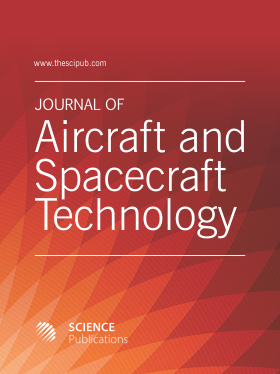Unmanned Helicopters
- 1 Bucharest Polytechnic University, Romania
- 2 Second University of Naples, Italy
- 3 American University of Ras Al Khaimah, United Arab Emirates
Abstract
Airbus, the European aerospace giant is working on the transport solutions that will be used in the cities of the future. In their research laboratories, technicians are working on the creation of a network of flying and 100% autonomous vehicles. An innovation that could well contribute to preparing the transport of cities of the future. One of the most famous unmanned helicopters is Northrop Grumman MQ-8 Fire Scout, a pilotless helicopter developed by Northrop Grumman specifically for use by the United States Armed Forces. The project called Scout Fire was designed to provide recognition, situational awareness, support for aerial fire and support for accurate focusing of ground, air and sea forces. Airbus imagines a flying taxis driven by a pilot at first. This first step allowed a faster implementation which would test and create this new market. Then, flying taxis would become more and more autonomous as the regulations evolve. The fare may eventually cost the price of a current taxi fare for each of the passengers. The race will be faster, more respectful of the environment and certainly more fun! Probably at first many people will be afraid to climb aboard such vehicles, but in time they will get used to the idea and will try their use. Just to get rid of people's fears of using such vehicles faster, they will initially be fitted with a pilot who will test the vehicle for a while and talk to passengers trying to encourage them. We are initially talking about pilot flying taxis, so they are first implemented. But then the flights will be absolutely alone, without a pilot and people will go to such a taxi in a station and then they will ask for the route and the desired destination or perhaps only the destination and the taxi will take them he alone automatically at the required destination. Perhaps such a project would seem at first glance a beautiful dream, fantastic even though unrealistic. Still, let's not forget that today we already have unmanned helicopters, operated from a job that follows them. Today we already have many airplanes and unmanned flying boats flying successfully. At first, they only transported goods and objects, usually military, but then they also began to transport people, combat crews. Implementation has been stepped up and controlled, so projects of this kind are not doomed to failure. Today we all know that this project has succeeded and is already operational anywhere in the world. Today we are already starting to build it and tomorrow it will become a reality. Technologies have advanced far enough to develop such a bold project. A city specially designed to carry a city-based fly-trip project has the advantage that all buildings, roads, fixed or moving obstacles are built right from the start as it should, avoiding the many unknowns that seem easier to overcome in the initial pilot flight, but can be a further problem when the pilot leaves the cabin of the aircraft and will do it alone. Of course, it's not just an automated pilot, but a whole unmanned flight control concept that is constantly controlled even if the routes are designed to be automatically recorded.
DOI: https://doi.org/10.3844/jastsp.2017.241.248

- 5,366 Views
- 2,758 Downloads
- 18 Citations
Download
Keywords
- Unmanned Helicopters
- Pilotless Helicopter
- Modern Flight
- Flight Quality
- High Safety
- Some Special Aircraf
- Helicopters
- Spacecraft Propulsion
- US Army
- Northrop Grumman
